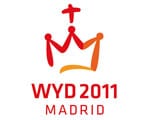 Fundamentally, this World Youth Day is about the hunger for identity in a fragmented world. So writes John Allen in an attempt set WYD ’11 against a wider backdrop.
Fundamentally, this World Youth Day is about the hunger for identity in a fragmented world. So writes John Allen in an attempt set WYD ’11 against a wider backdrop.
He sees it as part of a broader trend of younger people rebelling against a rootless secular world, making them eager to embrace clear markers of identity and sources of meaning.
He uses the term “Evangelical Catholicism” to capture the Catholic version of a 21st century politics of identity, reflecting the long-term historical transition in the West from Christianity as a culture-shaping majority to Christianity as a subculture, albeit a large and influential one.
He defines Evangelical Catholicism in terms of three pillars:
- A strong defense of traditional Catholic identity, meaning attachment to classic markers of Catholic thought (doctrinal orthodoxy) and Catholic practice (liturgical tradition, devotional life, and authority).
- Robust public proclamation of Catholic teaching, with the accent on Catholicism’s mission ad extra, transforming the culture in light of the Gospel, rather than ad intra, on internal church reform.
- Faith seen as a matter of personal choice rather than cultural inheritance, which among other things implies that in a highly secular culture, Catholic identity can never be taken for granted. It always has to be proven, defended, and made manifest.
So he is quick to point out that he thinks it’s a mistake to diagnose this trend in ideological terms, as if it’s about the politics of left vs. right. “For today’s younger Catholics, it’s more a matter of generational experience. They didn’t grow up in a stuffy, all-controlling church, so they’re not rebelling against it. Instead, they’re rebelling against a rootless secular world, making them eager to embrace clear markers of identity and sources of meaning.”
For the record as one who has covered five World Youth Days he clearly distinguishes at least three groups at WYD.
- A gung-ho inner core
- A more lukewarm cohort, who don’t think about religion all that much, but who still go to Mass and see the faith as a positive thing
- Those who are just along for the ride, perhaps because their parents would pay for WYD but not spring break in Cabo.
“Pastorally, I’ve always thought the aim was to nudge a few young people from that second group into the first, and from the third group into the second.”
“That said, the Evangelicals clearly set the tone. World Youth Day is perhaps the lone international venue where being faithfully, energetically Catholic amounts to the “hip” choice of lifestyle. To be clear, this passion isn’t artificially manufactured by party ideologues and foisted on impressionable youth, like the Nuremberg rallies or Mao’s Red Guard brigades; it’s something these young believers already feel, and WYD simply provides an outlet.”
He concludes…
“the contest for the Catholic future is therefore not between the Evangelicals and some other group — say, liberal reformers. It’s inside the Evangelical movement, between an open and optimistic wing committed to “Affirmative Orthodoxy,” i.e., emphasizing what the church affirms rather than what it condemns, and a more defensive cohort committed to waging cultural war.
“How that tension shakes out among today’s crop of church leaders will be interesting to follow, but perhaps even more decisive will be which instinct prevails among the hundreds of thousands of young Catholics in Spain this week, and the Evangelical generation they represent.
Some questions followers of Vincent and Louise might think about:
- To what extent does his claim that WYD ’11 is an expression of a hunger for identity in a fragmented world ring true?
- Does it make sense to see this hunger transcending the politics of left and right, liberal or conservative?
- In light of this what might be the lasting impact of WYD ’11?
Tags: Catholicism, Featured, John Allen, Madrid, World Youth Day, Youth

Interested to hear the term, ” Affirmative Orthodoxy” and the Evangelical aspect of the faith of young Catholics. Appreciate being reminded that they are not against Church but the “rootless society” they live in. Thanks so much!
More on “affirmative orthodoxy”…. Since 2007 John Allen has been pointing to this theme of “affirmative orthodoxy” as an interpretive key to Benedict XVI. This emphasis apparently predates his papacy as can be seen on the site Catholic ducation Resource Center in reference to a 1997 book-length interview Salt of the Earth.